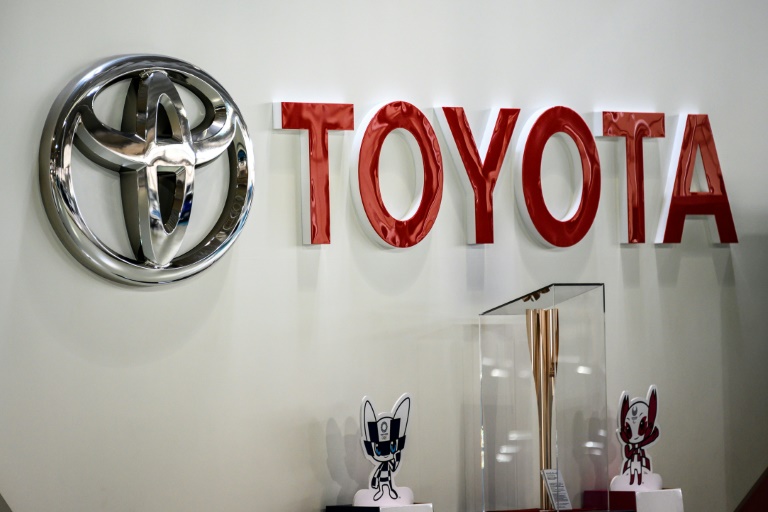Toyota will cut auto production by 40 percent in September as the global chip shortage hits its supply chain, Japan’s Nikkei daily said Thursday.
The world’s largest automaker had planned to build just under 900,000 vehicles next month, but this has been revised to around 500,000, the Nikkei said, without citing sources.
The spread of the more infectious Delta coronavirus variant in Southeast Asia has also impacted Toyota’s procurement of parts, according to the Nikkei.
Toyota had no immediate comment.
The Japanese giant’s rivals have also been forced to slow or temporarily halt production due to the chip shortage.
Microchips are essential for the electronics systems of modern cars, and have been in short supply since the end of last year.
When the pandemic hit, carmakers scaled back orders and chipmakers shifted output to consumer electronics as people splurged on equipment to work and relax at home — leaving automakers in a tight situation as demand for vehicles picked up.
From early next month, Toyota will suspend operations at several Japanese factories and scale back production in North America, China and Europe, the Nikkei said.
The chip crunch and other virus-related supply chain issues have already caused several short suspensions at Toyota’s Japanese factories.
The company reported a record first-quarter net profit earlier this month, with strong sales fuelled by the recovery from the coronavirus crisis.
Following the Nikkei report on Thursday, Toyota shares plunged 4.42 percent to 9,295 yen.










